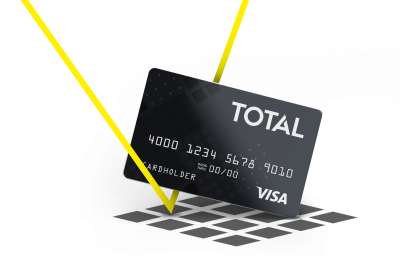So, you know you need to check your credit score – but what about monitoring your credit report? While it helps just to know your credit score if you’re trying to build your credit, it’s also important to monitor your credit score to catch potential errors. You’d be surprised – credit report errors are actually quite common. According to Consumer Reports, 34% of people found at least one error on their credit report in 2021. The good news is that the Federal Trade Commission mandates that both the credit bureaus (TransUnion, Equifax, and Experian) and the company that reported the error are legally obligated to correct mistakes – at no cost.
Keep in mind that most companies only update the credit bureaus once a month. So, if there’s new information or if you’ve corrected a change, it can take up to 60 days to see the new or corrected credit report. Make sure to keep track of your records – that way you won’t forget if you have an open claim, but you also won’t waste your time calling when it’s too soon to see a claim.
Not all mistakes on your credit report hurt your credit. Sometimes, there’s a misspelling of your name, an incorrect address, etc. However, it’s still important to get those errors fixed. Imagine if you have a common name, like John Smith.
While it’s not in itself affecting your credit score if your name is spelled “Jon Smith,” it’s possible the lender is reporting the wrong person’s credit history as yours.

So, here’s some types of errors to look out for:
- Identity-related errors
- A misspelled name
- A wrong phone number or address
- Your information merged with another person’s credit record. This happens more frequently if you have a common name, like John Smith.
- Incorrectly reported accounts
- An account you closed that is still reported as open
- An account wrongly reported as delinquent. For example, an account where you’ve been making prompt payments may incorrectly be listed as late.
- Incorrect account balance amounts
Even though it won’t cost you anything, if you do find an error, it will take a bit of legwork – and time – on your part to fix it! Be patient and make sure you keep good records of the errors you find and the efforts you’ve made to correct them.
Dispute the credit report error with each credit bureau that has the mistake on your record. Write a letter explaining what you think is incorrect. To make sure everything has the best chance of resolution, you should include:
- Your contact information including complete name, address, and telephone number
- Clearly identify each credit report error, like the account number for any account you may be disputing
- The reason why you are disputing the information
- Your request that the information be removed or corrected. If you want the information corrected, make sure you include what the correct information is.
- A copy of your credit report with the disputed items highlighted or circled. Make sure you’ve included the report from the proper bureau!
- Copies of any documents that support your claim
Contact the Reporting Company
You can also contact the reporting company (for example, the credit card company) if there is an account reporting error. This can save you a lot of time! The reporting company can simply correct the error on their end without the credit bureau having to conduct an investigation. On the other hand, if the error is an identity-related mistake, it’s best to contact the bureau first.

Wait for the Response & Monitor Your Credit Report
The credit bureaus usually respond to your dispute within 30-45 days. In the meantime, it’s difficult to know your credit score’s accuracy. However, if you dispute information and the reporting company still reports the same information, resolving disputes can take up to 90 days!
It’s also important to know that you can attach a personal statement to an item on a credit report. People who pull your credit report will have the option to read your statement along with the reporting company’s claims.
Remember that a credit bureau may not always respond in your favor! As always, the best thing you can do for yourself is to know your credit score, monitor your credit report, report errors, and document everything!
